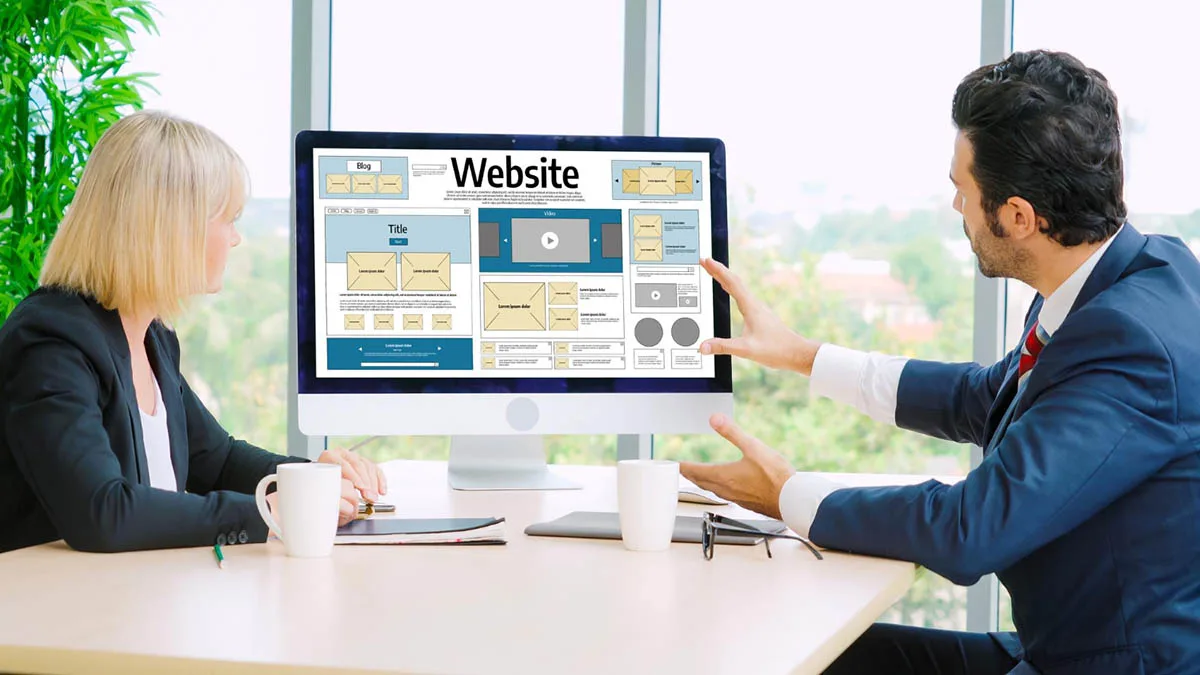In today’s digital world, a well-designed website is crucial for any startup aiming to make a mark. A high-impact website not only attracts visitors but also converts them into customers. WordPress is a strong tool that helps you make a professional website even if you don’t have technical skills. This post will show you how to build a successful business website with WordPress, from getting started to making it better.
Understanding the Role of a Business Website
A business website is usually the most important part of your online presence. It acts as the primary point of contact between you and potential customers. Understanding its role can help you leverage it effectively to achieve your business goals.
Why Your Business Website Matters
Your business website serves as your online storefront. It’s often the first impression potential customers will have of your brand. A high-quality website can:
- Attract Visitors: A well-designed site catches the eye and encourages visitors to stay longer.
- Build Credibility: A professional-looking site helps establish trust with your audience.
- Generate Leads: Effective call-to-actions and forms can turn visitors into leads and customers.
How WordPress Facilitates Success
WordPress is a popular choice for building business websites due to its:
- Flexibility: With thousands of themes and plugins, you can customize your site to fit your needs.
- Ease of Use: Even beginners can manage and update content easily.
- Support and Community: WordPress has a large community that provides support and resources.
Getting Started with WordPress for Your Business Website

Starting with WordPress involves a few key steps. First, you need to establish a foundation with a domain name and hosting. Next, installing WordPress is straightforward and prepares you for customization and content creation.
Choosing the Right Domain and Hosting
Before you can start building your website, you need a domain name and hosting:
- Domain Name: Choose a domain name that reflects your brand and is easy to remember. For example, if your business is called “Tech Solutions,” a domain like www.techsolutions.com would be ideal.
- Hosting Provider: Select a reliable hosting provider that offers good performance and support. Popular options include Bluehost, SiteGround, and WP Engine.
Installing WordPress
Once you have your domain and hosting, you need to install WordPress:
Log in to your hosting account and find the WordPress installer in your control panel.
Follow the instructions to complete the installation. This usually involves entering basic information like your site’s name and your admin email.
Access your WordPress dashboard by going to www.yourdomain.com/wp-admin and logging in with the credentials you set up.
Designing Your Website for Impact
Design is a critical component of a successful website. It influences how visitors perceive your brand and interact with your content. Selecting the right theme and creating a user-friendly layout are essential steps in this process.
Selecting a Professional Theme
Your website’s theme determines its appearance:
- Choosing a Theme: Look for a theme that suits your business style. For example, if you run a photography business, you might choose a theme with large image galleries.
- Customizing Your Theme: Use the WordPress Customizer to change colors, fonts, and layouts to match your brand.
Creating a User-Friendly Layout
A user-friendly layout enhances the visitor experience:
- Intuitive Navigation: Ensure your menu is easy to navigate. Include clear categories and a search function.
- Essential Pages: Create key pages such as Home, About Us, Services, and Contact. These pages should provide visitors with the information they need about your business.
Enhancing Functionality with Plugins
Plugins add new features to your WordPress site, making it more useful and improving how well it works for users. Knowing which plugins to use can make a significant difference in how your site operates.
Essential Plugins for Business Websites
Plugins add functionality to your WordPress site:
- SEO Plugins: Install plugins like Yoast SEO to improve your search engine rankings.
- Security Plugins: Use plugins like Wordfence to protect your site from threats.
- Performance Plugins: Implement caching plugins like WP Super Cache to speed up your site.
Custom Plugins and Solutions
For specific needs, you might require custom plugins:
- Custom Development: If your business has unique requirements, consider custom plugin development. For example, an e-commerce store might need a specialized payment gateway.
Optimizing Your Website for Search Engines and Users
Optimizing your website for both search engines and users is key to achieving better visibility and engagement. SEO best practices and performance enhancements are crucial for maintaining a competitive edge.
SEO Best Practices for WordPress
Search engine optimization (SEO) helps improve your site’s visibility:
- On-Page SEO: Use relevant keywords in your content, titles, and meta descriptions. Ensure each page has a unique title and description.
- Off-Page SEO: Build backlinks to your site from reputable sources to increase its authority.
Improving Website Performance
A fast-loading website keeps visitors engaged:
- Loading Times: Optimize images and use a content delivery network (CDN) to speed up your site. Tools like Google PageSpeed Insights can help you identify performance issues.
- Mobile Optimization: Ensure your site is mobile-friendly by using responsive design. Check how your site looks on different devices and adjust as needed.
Maintaining and Updating Your WordPress Website

Regular maintenance is vital for keeping your WordPress site secure and functional. Regular updates, backups, and performance checks keep your site running well for users.
Regular Updates and Backups
Keeping your site up-to-date and backed up is crucial:
- Updates: Regularly update WordPress, themes, and plugins to ensure security and functionality. Outdated software can lead to vulnerabilities.
- Backups: Use plugins like UpdraftPlus to create regular backups of your site. This ensures you can restore your site if something goes wrong.
Monitoring and Analyzing Performance
Track your site’s performance to make improvements:
- Analytics Tools: Use tools like Google Analytics to monitor visitor behavior and site traffic. This data helps you understand what’s working and what needs improvement.
- User Feedback: Gather feedback from visitors to find out what can be improved and to fix any problems they experience.
Power-Devs: Your Partner in WordPress Success
Power-Devs provides expert help to get the most out of your WordPress website. Their expertise can provide the edge you need to stand out in a competitive market.
How Power-Devs Can Help
Power-Devs offers expert services to enhance your WordPress site:
- Professional Development: Power-Devs provides custom development solutions to meet your specific needs.
- Ongoing Support: They offer ongoing support and maintenance to keep your site running smoothly.
Getting Started with Power-Devs
To work with Power-Devs:
Contact Them: Reach out via their website or contact form to discuss your project.
Project Process: You can expect a thorough consultation to discuss your needs, followed by a customized plan and its execution.
Conclusion
Building a powerful business website with WordPress can greatly help your startup succeed. By following the steps in this post, you’ll be able to create a professional website that draws in and keeps visitors interested. Begin using these tips now and think about working with Power-Devs to further enhance your WordPress site.
